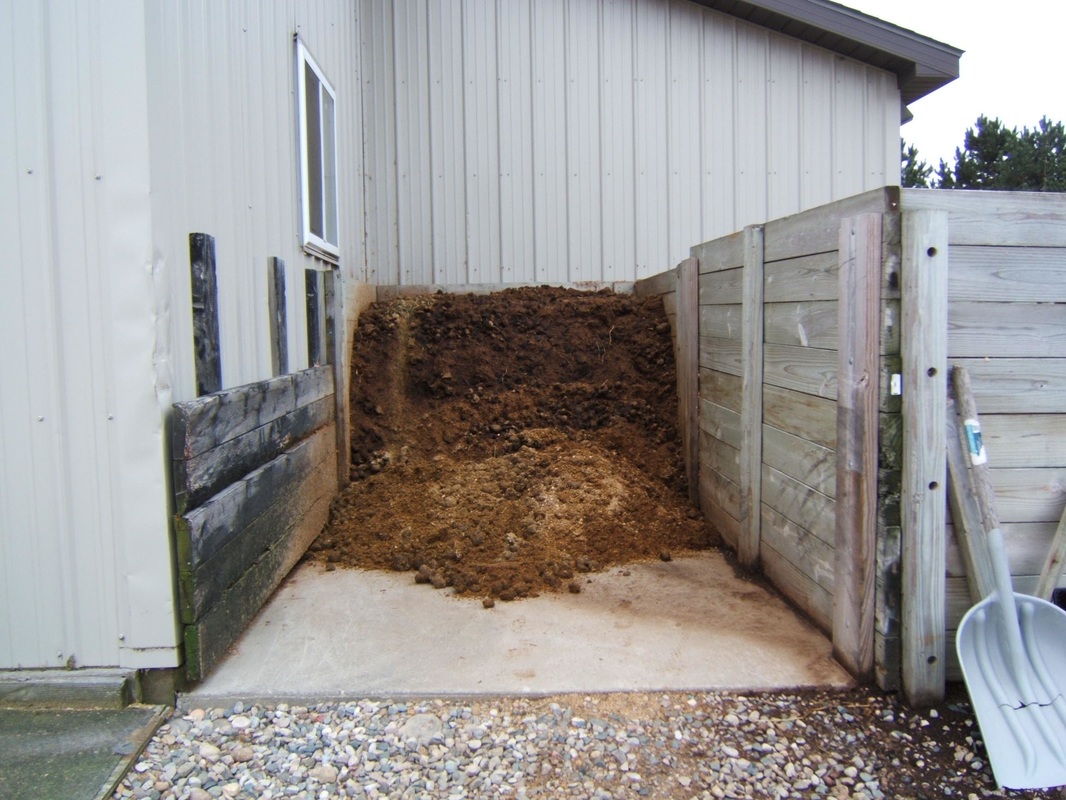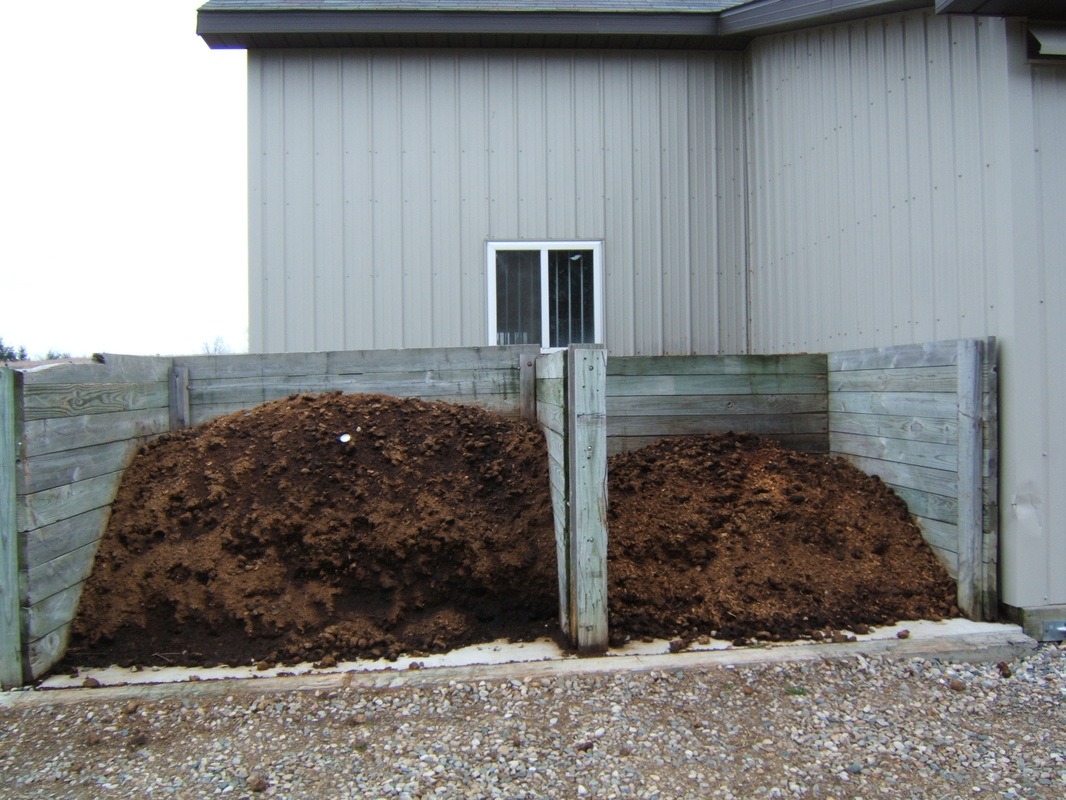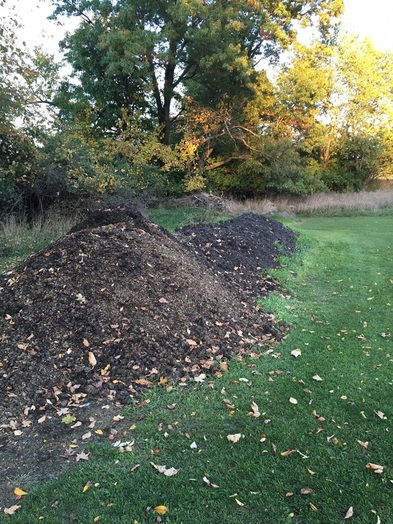The Composting processThis is the "active" bin.. This is where composting begins.
While in bins 2 and 3, the compost is rotated and turned and the temperature is continually monitored.
The compost is stored in a windrow that is flipped and rotated on a regular basis. The pile is smaller at the end of the gardening season...but never fear...there is always more where that came from!
|
Benefits of compost
|



